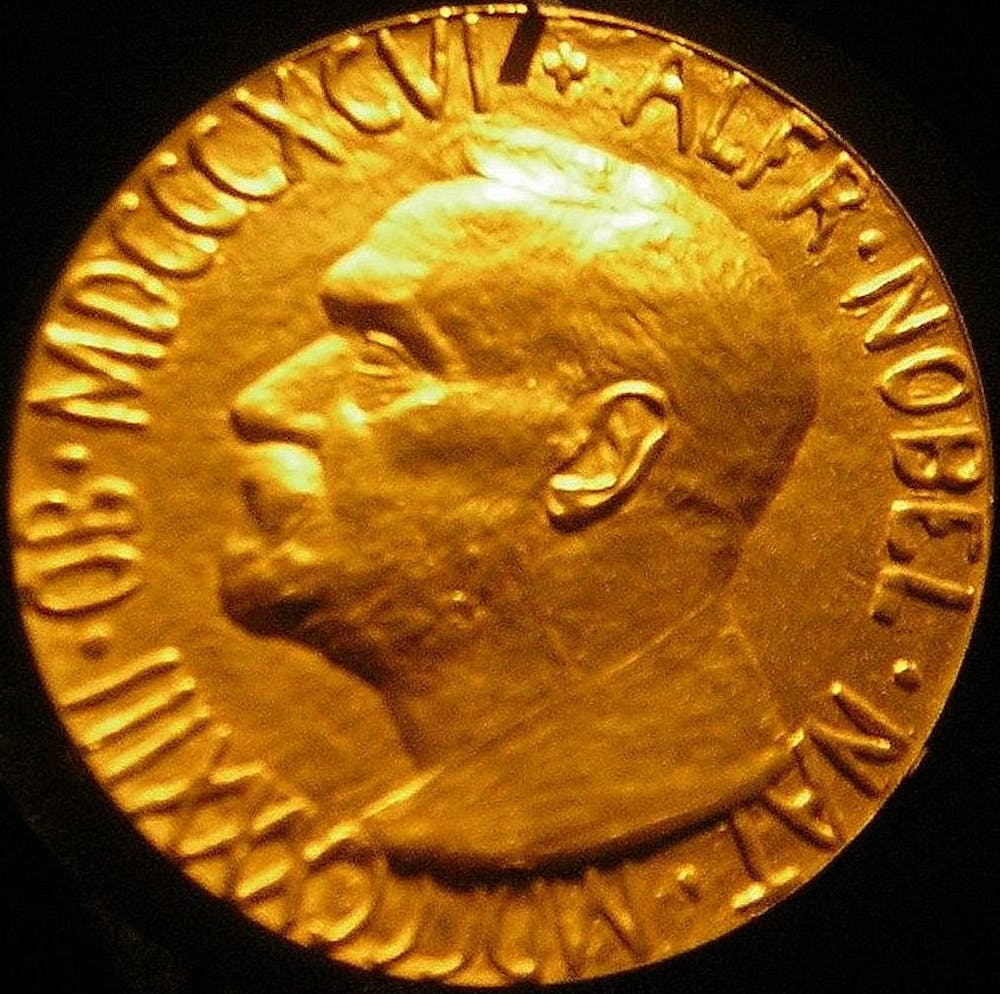By MANISH PARANJPE For The News-Letter
The Norwegian Nobel Committee announced on Oct. 12 that the Nobel Prize in Physiology or Medicine was awarded one-half to Tu Youyou for developing a therapy against malaria and one-half to William Campbell and Satoshi Omura for their respective developments of treatments for river blindness. Their efforts have saved millions of lives and led to a substantial improvement in quality of life in regions once ravaged by these parasitic diseases.
Tu, the chief scientist of the China Academy of Chinese Medical Sciences and winner of the 2011 Lasker Prize, was awarded the Nobel Prize for her pioneering efforts to isolate artemisinin — the world’s leading anti-malaria drug. Japanese biochemist Satoshi Omura and Irish biologist William Campbell shared the prize for their discovery of ivermectin, which is used to combat parasitic worm infections.
All three of this year’s Nobel Prize recipients have impacted basic health systems through their discovery of anti-parasitic agents.
“By 1967, the world needed a totally new structured antimalarial to deal with the widespread strains of drug-resistant malaria,” Dingyin Tao, an assistant research scientist in the Bloomberg School of Public Health, wrote in an email to The News-Letter. “[Tu] reviewed thousands of traditional Chinese remedies by testing them in mice. One compound — from the leaves of the Chinese wormwood plant, Artemisia annua seemed to vanquish malaria parasites in the blood.”
Tu eventually found that by using a low-temperature extraction method she could obtain an extract from the wormwood plant that was 100 percent effective in treating malaria in mice and monkeys, Tao explained. Millions of lives have been saved in the global battle against malaria as a result of the Chinese scientist’s efforts. Global mortality rates for malaria have been reduced by 47 percent since 2000, according to the World Health Organization.
Satoshi Omura, professor emeritus at Kitasato University, and Max Tishler, professor of chemistry at Wesleyan University, and William Campbell, research fellow emeritus at Drew University, isolated and produced the anti-parasitic compound ivermectin from the Streptomyces bacterium.
“Ivermectin has been extraordinarily effective in treating lymphatic filariasis and river blindness. These diseases are disappearing,” Peter Agre, winner of the 2003 Nobel Prize in Chemistry and director of the Johns Hopkins Malaria Institute, wrote in an email to The News-Letter.
Gilbert Burnham, co-director of the Center for Refugee and Disaster Response at Hopkins, had the opportunity to conduct community-based trials of ivermectin in Malawi in 1989.
“The discovery of ivermectin [by Omura and Campbell] for the treatment of onchocerciasis, or river blindness, and the subsequent donation of the medicine by its manufacturer Merck for mass distribution is one of the signal events of global health,” Burnham wrote in an email to The News-Letter.
“The effects by ivermectin on the severe itching and disfigurement produced by the parasite were dramatic. As well, the widespread blindness caused by dying parasites in the eye, the hallmark of the disease, was halted,” he added. “By 2012 some 1.2 billion treatments had been given, [and as a result] the disease is approaching remission in Latin America and several African countries.”
A defining quality of both iveremectin, which is produced from the secretions of the Streptomyces bacterium, and Tu’s artemisinin, which is derived from the Chinese wormwood plant, is that they were isolated from natural sources.
“There are active efforts to identify natural substances to derive antimicrobials,” William Moss, professor and head of epidemiology at the International Vaccine Access Center of Bloomberg School of Public Health, said. He believes that looking to microorganisms to produce the next class of anti-microbial drugs is a promising approach.
While the naturally derived drugs may be a promising area of research, Agre warned of the market implications.
“Pharmaceutical manufacturers require major profits as an incentive for their work,” he wrote. “We need to balance this with the public’s need for affordability. Our political leaders have still not figured that one out.”
The Nobel Prize is not only a career-defining achievement for the three winners, but also a momentous triumph for their countries. This year is particularly special for China, as Tu is the first Chinese scientist to be awarded the Nobel for medicine.
“[The Nobel Prize] is great honor for Tu, as well as the entire Chinese research industry who are committed working hard to improving the quality of life,” Tao, the researcher at Bloomberg, said. The Chinese government has continued to increase its spending on research and development, accounting for greater than two percent of its annual GDP, according to Tao.
“Peking University and Tsinghua are the top two research universities in China. But besides these institutions, [China has] several other top comprehensive universities such as Fudan University, University of Science & Technology of China, Zhejiang University, Shanghai Jiao Tong University [and] Nanjing University,” he added.
All three of this year’s Nobel Prize recipients have had a tremendous impact on reducing human suffering worldwide. Moving forward for these special scientists, fellow Nobel laureate Agre offered a word of caution: “Nobel laureates are often smothered by requests or even demands.”





